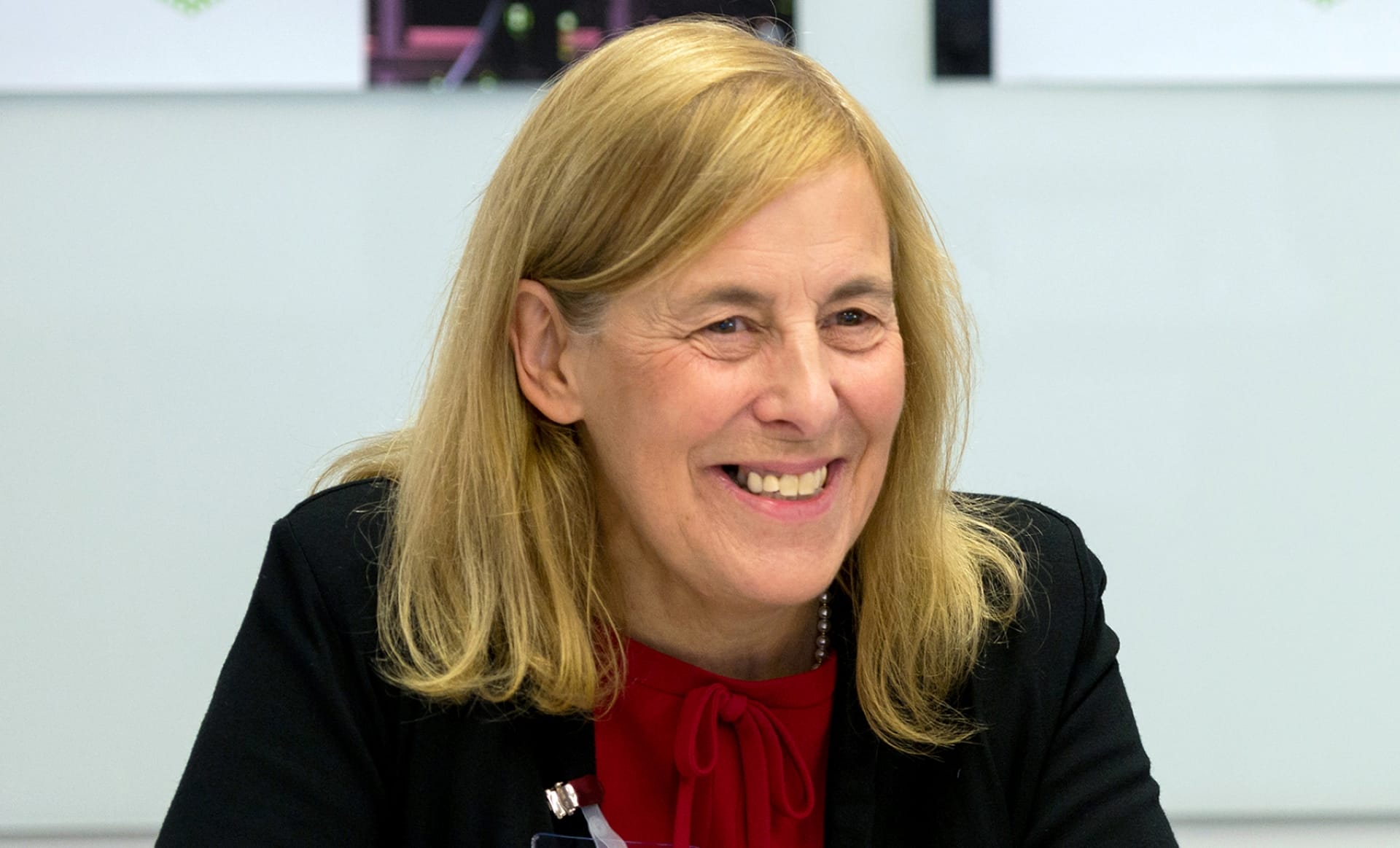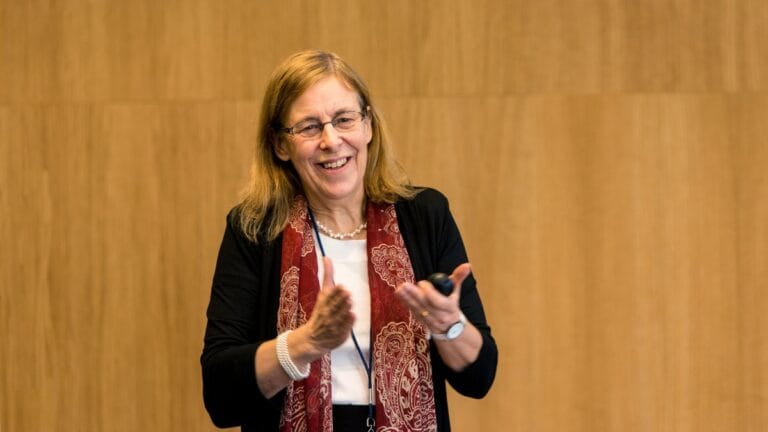Giants in genomics: Janet Thornton

Professor Dame Janet Thornton was director of the European Molecular Biology Laboratory’s European Bioinformatics Institute (EMBL-EBI), which shares the Wellcome Genome Campus with the Wellcome Trust Sanger Institute, from 2001 to 2015.
Key terms
Bioinformatics
The interdisciplinary field of science which uses computer methods and softwares to understand biological data.
Born in the UK on the 23rd May 1949, Janet Thornton is one of the world’s leading researchers in structural bioinformatics. Bioinformatics is an important field within biology that looks to develop computer software to help generate biological knowledge.
Janet studied physics at the University of Nottingham. She then went on to complete a master’s degree in biophysics at King’s College London as part of her PhD at the National Institute of Medical Research.

EMBL-EBI
She has worked at the University of Oxford, National Institute of Medical Research, Birkbeck College (part of the University of London) and University College London. She is now at the European Molecular Biology Laboratory’s European Bioinformatics Institute (EMBL-EBI) on the Wellcome Trust Genome Campus and was the EMBL-EBI Director from 2001 until 2015. She led the growth of the institute from 160 to over 600 people.
She leads a research group at EMBL-EBI, studying the biology of proteins and ageing, and is a leading voice in the scientific community. When she started her career, there were only about 20 known protein structures, and now there are over 200,000 structures in the Protein Data Bank (PDB), and over 200 million predictions by AlphaFold.
EMBL-EBI is part of the European Molecular Biology Laboratory (EMBL), a basic research institute funded by 21 member states across Europe. The European Bioinformatics Institute is committed to making all of the data they look after and the bioinformatics services they provide, freely available to all to help promote scientific progress. They make huge contributions to the advancement of biology through the development of open source cutting-edge technology.